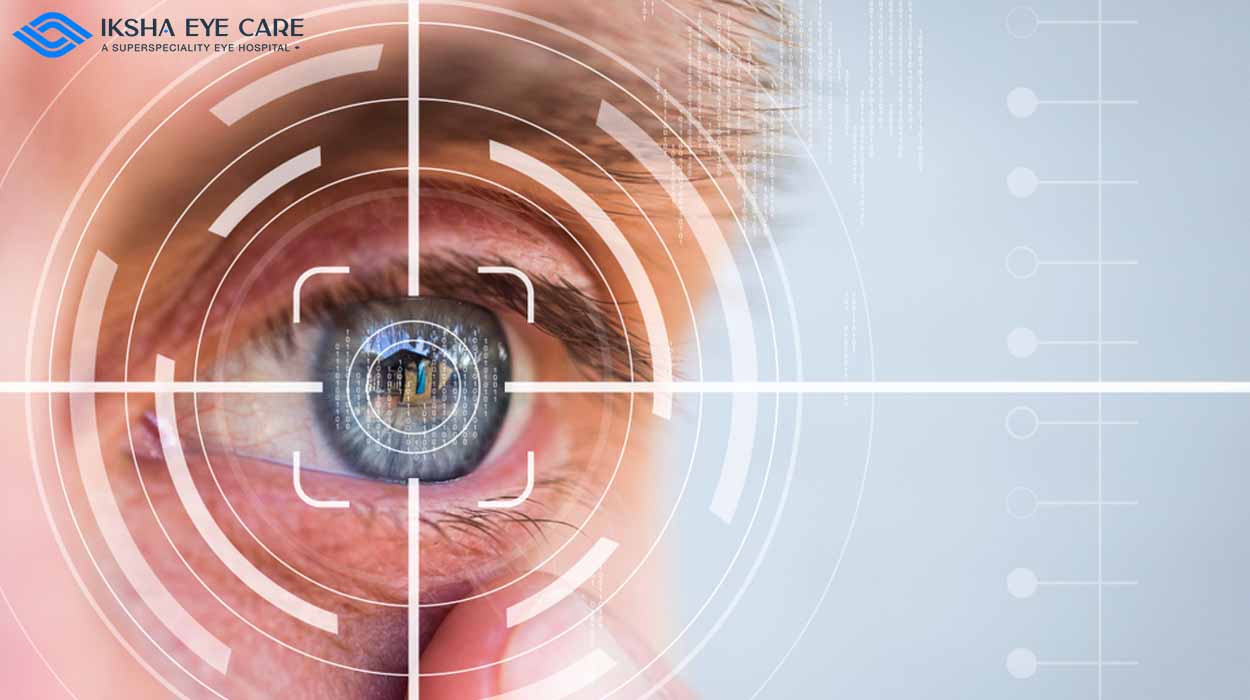Recognizing the Various Eye Conditions Dealt With by Specialized Eye Care Professionals
In the realm of eye treatment, specialized specialists play a crucial function in diagnosing and treating a large variety of eye conditions. As we embark on this expedition of the various eye problems dealt with by specialized eye treatment experts, it becomes obvious that the intricate web of eye wellness holds a myriad of interesting insights waiting to be uncovered.
Typical Refractive Mistakes
Refractive errors prevail visual problems caused by a flaw in the eye's capability to appropriately focus light, leading to obscured vision. One of the most prevalent kinds of refractive mistakes include myopia (nearsightedness), hyperopia (farsightedness), astigmatism, and presbyopia. Nearsightedness occurs when the eyeball is as well long or the cornea is as well bent, causing distant challenge appear blurry. Hyperopia, on the other hand, occurs when the eyeball is too short or the cornea is also flat, resulting in nearby things running out focus. Astigmatism is characterized by an irregularly shaped cornea, resulting in distorted or blurred vision at all ranges. Presbyopia is an age-related problem where the lens sheds its adaptability, making it difficult to focus on close items.
These refractive errors can be remedied via various approaches, including spectacles, call lenses, or refractive surgery. Eye treatment professionals play a critical role in identifying and managing refractive errors to aid people attain clearer vision and improve their quality of life.
Age-Related Eye Problems
One of the most prevalent age-related eye conditions is age-related macular deterioration (AMD), a disease that creates main vision loss and can make tasks like reading and driving difficult. Cataracts, one more typical condition amongst older people, cause clouding of the eye's natural lens, leading to blurred vision. Routine eye exams with specialized eye care experts are crucial for early detection and management of these age-related eye conditions to maintain vision and preserve ocular health and wellness as people grow older.
Vision-Threatening Illness
Vision-threatening conditions encompass a series of serious eye problems that have the possible to significantly impact an individual's eyesight and overall visual function. These diseases posture a danger of permanent vision loss if not promptly identified and treated by specialized eye care professionals. Some usual vision-threatening diseases consist of glaucoma, diabetic retinopathy, age-related macular degeneration (AMD), and retinal detachment.
Glaucoma is a group of eye problems that damage the optic nerve, frequently due to high intraocular pressure, leading to peripheral vision loss and possible blindness if eyecare near me left without treatment. AMD is a dynamic condition impacting the macula, leading to main vision loss.
Very early detection, regular eye tests, and timely treatment are important in handling vision-threatening diseases to preserve eyesight and maintain lifestyle. Specialized eye treatment specialists play a crucial duty in diagnosing, dealing with, and taking care of these problems to stop irreversible vision loss.

Corneal Conditions
Corneal conditions incorporate a spectrum of conditions that affect the clear front component of the eye, referred to as the cornea. These conditions can lead to pain, aesthetic disturbances, and in extreme cases, vision loss. One usual corneal condition is keratoconus, where the cornea thins and bulges exterior into a cone form, triggering astigmatism and obscured vision. Corneal dystrophies, such as Fuchs' dystrophy, lead to gradual vision loss as a result of unusual down payments in the cornea. Corneal abrasions, commonly triggered by injury or international objects, can cause discomfort, redness, and level of sensitivity to light. Additionally, infections like keratitis can irritate the cornea, potentially causing scarring and vision impairment if not without delay treated. Therapy for corneal disorders varies depending upon the certain problem but may include medicines, call lenses, or in severe cases, corneal transplants. Regular eye exams are necessary for very early detection and administration of corneal problems to protect vision and eye health and wellness.
Neurological Eye Problems
Neurological eye problems include disorders that influence the connection in between the eyes and the brain, affecting aesthetic processing and total eye function. These conditions can show up in numerous ways, impacting vision, eye activities, and also the sychronisation in between the eyes. One usual neurological eye condition is optic neuritis, characterized by inflammation of the optic nerve bring about vision loss, color desaturation, and discomfort with eye movement.
One more substantial condition is nystagmus, where the eyes make repetitive, unrestrained activities, impacting visual skill and deepness perception. Furthermore, problems like amblyopia, frequently described as "lazy eye," result from unusual aesthetic development in early childhood years, leading to decreased vision in one eye.
Neurological eye problems call for specialized treatment from professionals like neuro-ophthalmologists who have experience in both neurology and ophthalmology. Diagnosis usually involves a detailed eye assessment, imaging researches, and collaboration with neurologists to deal with the underlying neurological problems impacting the aesthetic system. Therapy techniques can consist of drug, vision treatment, or in extreme instances, medical treatments to take care of these intricate problems effectively.

Verdict
Finally, specialized eye treatment experts treat a vast array of eye problems, including usual refractive errors, age-related eye problems, vision-threatening illness, corneal problems, and neurological eye conditions - refractive surgeries in al. By understanding these numerous conditions and looking for suitable treatment from eye treatment experts, individuals can preserve optimum eye health and vision. It is essential to prioritize normal eye assessments and adhere to recommended treatment plans to preserve and shield one's vision for the future